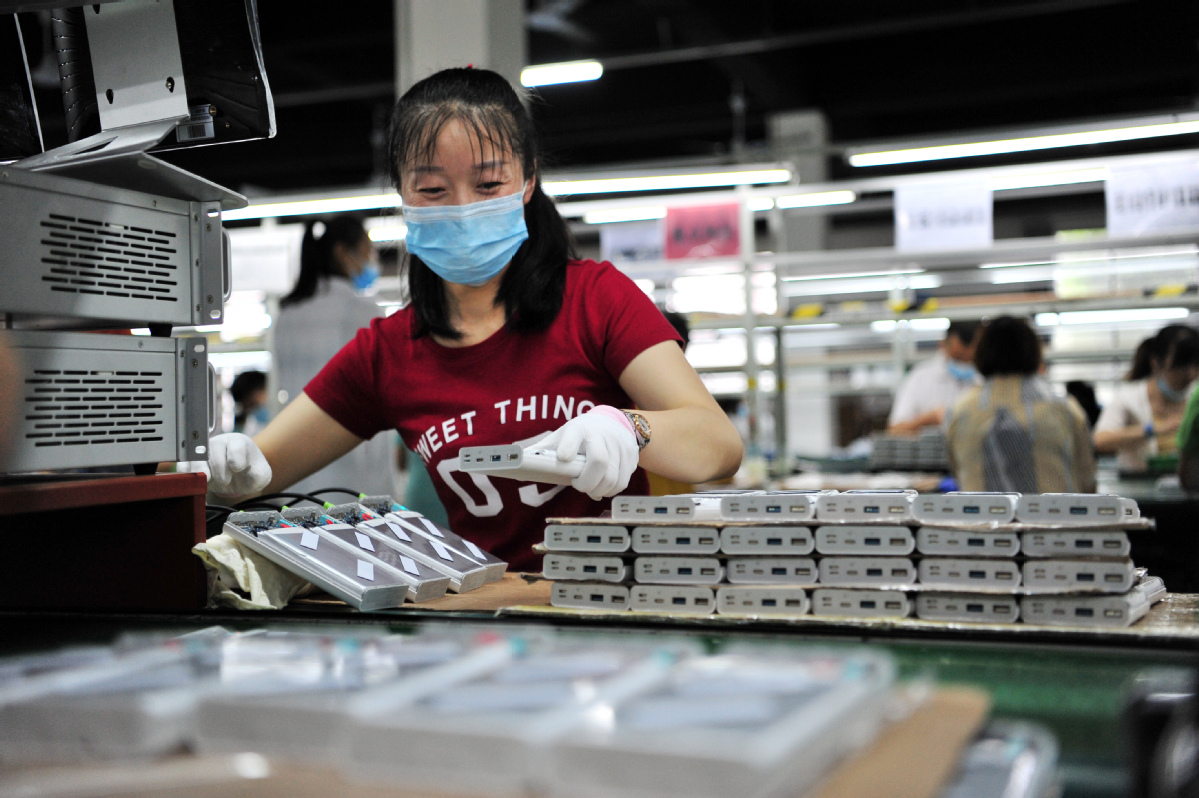Adviser calls for extending virus relief


A political adviser from Hubei province has urged the extension of a COVID-19 relief package that helped China's hardest-hit region stay afloat as it endured lockdown-induced economic woes last year.
The extension, suggested to run until the end of the year, would include a value-added tax exemption for a small number of qualified groups, according to a proposal submitted by Guo Yuejin, a member of the Standing Committee of the 13th National Committee of the Chinese People's Political Consultative Conference, the country's top political advisory body.
Terms of loans made to the province's small and medium-sized businesses also need to be extended until the year's end, the proposal said.
Deputies to the National People's Congress, China's top legislature, and members of the CPPCC National Committee have been holding plenary sessions in Beijing since early this month that are known as the two sessions.
Guo said central authorities need to "help the province to get on the horse and accompany it for a period", advocating continuing bailouts as Hubei's economy recovers over the coming months amid China's mass vaccination effort.
Wuhan, Hubei's provincial capital, was the Chinese city hit hardest by the virus.
Guo said tax revenues in Hubei are expected to rebound to just 90 percent of those in 2019 due to the lackluster performance of the real estate and service sectors.
Central authorities earmarked more than 150 billion yuan ($23.2 billion) in financial aid to the provincial government last year, and Hubei will be forced to scramble to finance projects, bail out businesses and protect people's livelihoods on its own if central subsidies vanish this year, Guo said.
The proposal also followed a 9.1 percent decline in business profits in Hubei from January to November last year, and the grim situation is projected to continue this year.
Smaller businesses, which offer the majority of China's urban jobs, could face "bigger problems" when the assistance is gone, Guo said.
In addition, more than 460,000 college graduates in Hubei are expected to enter the job market this year, while 100,000 students who graduated last year have yet to land jobs, he said.
Since April, the provincial government has rolled out a slew of measures to boost consumption, including digital consumption coupons and subsidies for car buyers equivalent to 3 percent of the purchase price.
Provincial officials announced in January that they will work to hit a 15 percent growth target for retail sales this year.
The province's economic performance was better than expected last year, but caution should be used to avoid a "benefit cliff", said Yan Zhi, a Hubei deputy to the 13th NPC, referring to a sudden halting of relief measures introduced at the height of the pandemic.
Yan, also a renowned entrepreneur, said the province saw no mass collapse of local businesses or widespread unemployment during a "disastrous year "in 2020.
He said the relief package introduced to aid the province in areas including finance, business fee cuts and investment in major projects should remain in place to ward off a "policy vacuum" or "benefit cliff".
"We need to ensure the continuity, stability and the sustainability of the aid," he said.
- China's CR450: A new era of high-speed rail at 400 km/h
- TAN SUO SAN HAO to pioneer future of deep-sea exploration
- Xi's discourses on Chinese modernization published in Japanese
- Officials summoned over alleged garbage bin food served to students
- Caring hearts help to enhance quality special education
- Xi sends condolences to South Korean acting president over plane crash




































